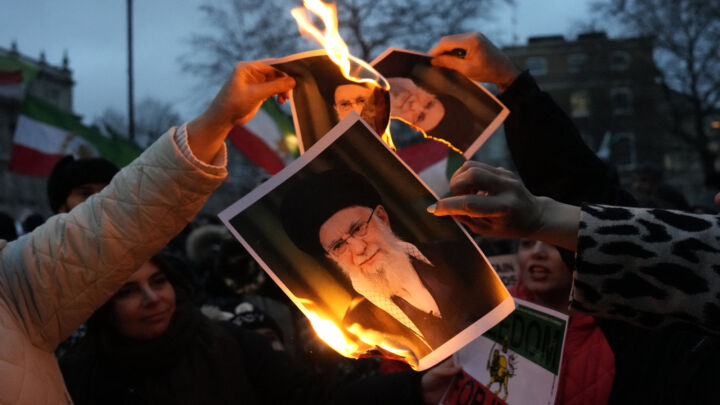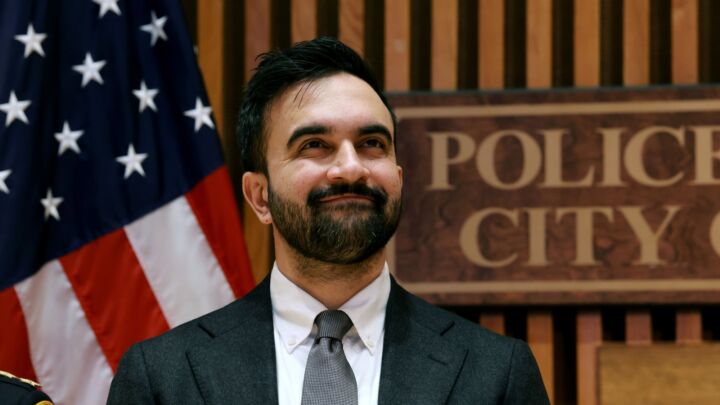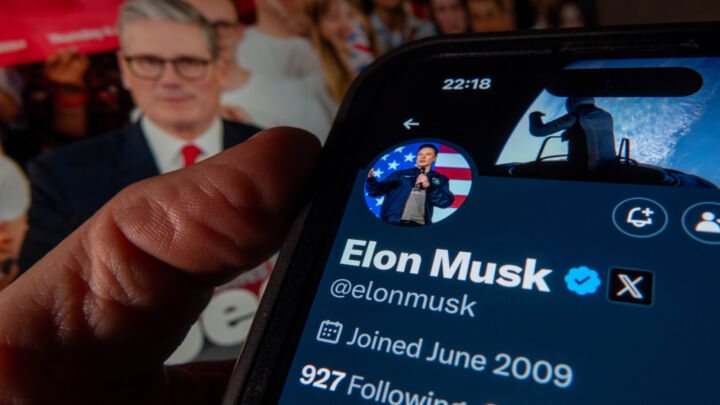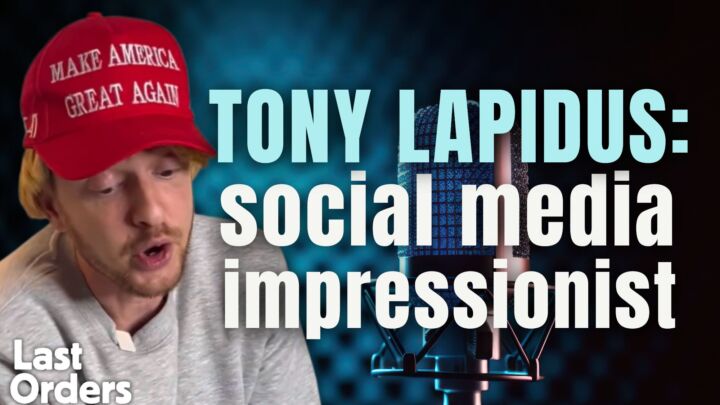V for Vacuous
From the Occupy protests to the anti-tuition fees protest, you’ll always find someone disguised as Guy Fawkes. What’s going on?

Want unlimited, ad-free access? Become a spiked supporter.
For nearly four years now, any anti-something-or-other demonstration worth its pseudo-revolutionary salt just wouldn’t be complete without a sizeable number of pretentious bulbs sporting identical Guy Fawkes masks. Anti-capitalist, anti-scientology, anti-greed… It doesn’t matter what the protest’s against, there that face will be, of the old gunpowder-plotter himself, complete with pointy beard and tache, slightly rouged cheeks and a really annoying leer.
So what is it about these particular masks? What is it that draws a not-insignificant number of self-styled anti-establishment types to an icon many in Britain associate with the 1605 attempt to blow up the protestant King James I and replace him with a nice Pope-friendly alternative?
Not that ye olde protestants need worry, of course. This historically illiterate predilection for protesting like it’s 1599 has nothing to do with an attempt to restore Catholicism to the throne. For the Occupy (Insert Random Place Name Here) movement, that would strike them as too offensively coherent an objective. Instead, those wearing the masks draw from a cultural resource of rather more recent vintage: V for Vendetta.
This was the 2006 film the Wachowski brothers made after everybody realised that the Matrix trilogy was not quite the Baudrillard-inspired revelation the first film promised it would be. Based on an episodic comic series by Alan Moore, which appeared at various intervals – publication houses permitting – during the 1980s, V for Vendetta told the story of ‘V’, a man who, in some dystopian near-future, is intent on overthrowing the totalitarian-cum-fascist Norsefire government then ruling England with a sub-1984 fist. Wearing what has now become a ‘must-have’ for the protesting season – a Guy Fawkes mask – V has a grand plan: he wants to incite the British populace to revolt on 5 November. This plan goes very well, as it happens, and out the people come on said date and reclaim The Power – and they do this while all wearing identical Guy Fawkes masks.
in California last week
This rendition of Guy Fawkes as popular revolutionary only really took off among trendy protesters following its adoption online. First, the internet messageboard 4Chan – an anarchic hangout for kids, porn-lovers and hacking types – featured a comic strip in late 2006 called ‘Epic Fail Guy’ showing a stick man looking into a bin before re-emerging wearing the V for Vendetta Guy Fawkes mask.
This iconography of online freedom, such as it was, eventually fed into the early-2008 campaign – led by internet flock Anonymous – against the Church of Scientology following the High Priest of Craziness Tom Cruise’s attempt to have a video showing him in full-on meltdown mode taken off the web. And when, a few weeks later, this online ire morphed into real-world, offline protests outside Scientology centres around the world, guess what the anti-Tom Cruise brigade wore to cover their faces? And so, from this point on, V for Vendetta-style Guy Fawkes masks, alongside the ubiquitous keffiyeh scarf, became the head attire of choice for any self-respecting protester.
Since early-2008, then, any demonstration against some sort of badness, whether Scientology, The Corporations, The Banks, The Government, has tended to involve a large, disparate number of people wearing identical V for Vendetta-style Guy Fawkes masks. They were there at the G8 summit in March 2009. There they were again at the G20 summit in Italy a few months later, and there they were at the anti-tuition fees protests of 2010.
Seeing them at the current Occupy protests, whether in New York or Rome, is hardly a surprise: St Julian of Assange, the man with the leaky wiki, even rocked up at London’s Occupy protest wearing one. In fact, so ubiquitous has it become as a symbol of Sticking It to The Man that Captain Ludd-imitator Captain Gatso, chief of speed-cam-destroyers Motorists Against Detection, decided to wear one for an interview with that journal of radical repute, the Islington Gazette.
Unsurprisingly, sales of the mask in recent years have rocketed, with Amazon reporting a 179 per cent increase over the past year. The mask’s producers, meanwhile, now claim that they sell more than 100,000 of the things a year, making it more popular than Batman, Harry Potter or Darth Vader. That’s fantastic news for mega-entertainment corporation Time Warner, which own the rights to the mask.
The obvious reason why the mask is worn is that protesters don’t want to reveal their identities, hence its origins in Anonymous. (A decision which is only partially understandable given the fact that plenty of protesters down the years have cared enough about their specific cause to want to be actually associated with it.) But the desire for anonymity doesn’t explain why this particular image – Guy Fawkes redux – has been singled out. What’s wrong with a balaclava or even a Frank Sidebottom?
keffiyeh, for those who like
to accessorise.
And it’s at this point that the posturing vanity of this particular choice of mask becomes apparent. As one deluded commentator wrote in the Guardian, ‘…unlike the balaclava, the [Guy Fawkes] mask also carries in itself a political dimension. The increasing number of sales of the mask tells the story of a generation disenfranchised from the political process, but one which remains wholly political.’ And what might that political dimension be? A commentator at the First Post offers an answer: ‘[The popularity of the mask] suggests a growing public imagination where the powers that be are seen as totalitarian in nature and the protesters feel the need to launch an epic struggle of sorts.’
This does indeed seem to be why Guy Fawkes, V-style, resonates. It allows the wearers to imagine themselves in the role of victims of totalitarian tyranny. It gives meaning to what can often be a fairly directionless protest by inserting it into an epic narrative, a tale of The People fighting back against the forces of oppression. That the protesters are desperately willing to dramatise their struggle as such is hardly surprising. Their conspiratorial mindset in which we, the people, the 99 per cent and so on, are at the mercy of all-powerful forces, be it The Rich, The Bankers, The Corporations, or The Tom Cruise finds a perfect fit in the dystopian tale of V. As one protester outside a Scientology church in Boston back in 2008 explained ‘It’s a symbol of what Anonymous stands for, of fighting evil governments’.
The flip side to protesters’ desperate attempt to dramatise their often diffuse protests in the form of a struggle against the shadowy forces of a totalitarian conspiracy is that the media are all too willing to take pictures of protesters wearing the mask as if it captures something of the protest’s essence. Hence on Monday, the Guardian carried a picture of an identikit Guy Fawkes on its frontpage with the headline: ‘Face of protest: From Wall Street to St Paul’s.’
All of which misses the point. This mask does not represent the actual content of contemporary protest. Rather it represents a yearning for content, a fantastical attempt to invent a purpose. By desperately trying to dramatise these protests, whether against bankers or corporations, as part of a struggle against some quasi-totalitarian state in hoc to Big Business, the Guy Fawkes mask symbolises recent protests’ complete lack of any real content. Protesters want to be what they are not. They want to be fighting a fantasy battle against the Big Bad Power Behind the Throne. In reality, they are fighting – or rather, camping out – for nothing in particular.
The popularity of V for Vendetta masks among protesters does capture something essential then. It captures the protests’ vacuity.
Tim Black is senior writer at spiked.
You’ve read 3 free articles this month.
Support spiked and get unlimited access.
Support spiked – £1 a month for 3 months
spiked is funded by readers like you. Only 0.1% of regular readers currently support us. If just 1% did, we could grow our team and step up the fight for free speech and democracy.
Become a spiked supporter and enjoy unlimited, ad-free access, bonus content and exclusive events – while helping to keep independent journalism alive.
———————————————————————————————————————————–
Exclusive January offer: join today for £1 a month for 3 months. Then £5 a month, cancel anytime.
———————————————————————————————————————————–
Monthly support makes the biggest difference. Thank you.









Comments
Want to join the conversation?
Only spiked supporters and patrons, who donate regularly to us, can comment on our articles.